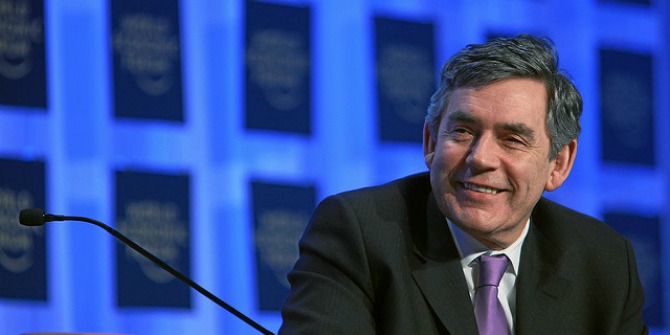Liberal Democrat leader Nick Clegg claims that there have been “no deals and understandings” with either Labour or the Conservatives in the event of a hung parliament, despite the media’s obsession with his (potential) role of kingmaker.
In February Clegg indicated that the LibDems were more interested in gaining support for their policies than in forming a coalition government.
But, of course, he believes “The party with the strongest mandate will have a moral right to be the first to seek to govern on its own or, if it chooses, to seek alliances with other parties.” With the Tories leading by 6 points, this could mean the Lib Dems uniting with the Conservatives, even though Clegg has admitted that when it comes to David Cameron- ‘I am literally lost. I do not know what the Tory party stands for.” Clegg has predictably called discussion on a LibDem-Labour coalition as ‘putting the cart before the horse,’ even though speculations abound; what, for example, would happen if the Tories won the popular vote but Labour won the most seats? This doesn’t really solve the big ‘what if’ question, does it?
Luckily the BBC has some answers (Q&A: What is a hung parliament?) Forming a coalition government is only one of the options a hung Parliament could face. We could see a minority government try to squeeze through legislation as it comes up or we could see a deal to call a new general election- although Clegg has publicly dismissed this option.
In the meantime, the Liberal Democrats have tried to assure the markets that his party would act as “guarantors of fiscal stability” if election day does not produce a majority, addressing fears that Monday’s drop in the pound was related to jitters over a hung parliament. The FT read this as a commitment to tacitly support either minority Conservative or Labour government in the interests of stability.
Liberal Democrat Polling
Of course, all of this means very little without a good result in the election for the Liberal Democrats. Our analysis indicates that they are perhaps polling lower than expected. If we look at equivalent polls at this time five years ago (so just two months out from the last election), we see polls for the Liberal Democrats at between 20 to 23 per cent (as compared with their current polling of around 17 per cent. Because so much media discourse is focussed on the ‘Big Two’ parties, the Lib Dems are often squeezed out, and this is not helped by a (perhaps unfounded) perception that the party and its leader, Nick Clegg, are somewhat ‘bland’.
As the election approaches (and certainly after it is officially called), and so when the campaign begins to ramp up, we would expect around a five percent jump in support for Nick Clegg’s party, which would put it at about the same level as the last election – 21 per cent. The Lib Dems will also benefit greatly from the televised debates agreed last week. Clegg has an enormous oppurtunity here – it’s likely that millions of people have only a dim idea of who he is and what his party represents. Given that he is opening the first debate and through the following two sessions, it is obvious that he has the most to gain out of the three main parties. We will be keeping an eye on how the Liberal Democrats poll both before and after the debates to see what the trend for support is.







